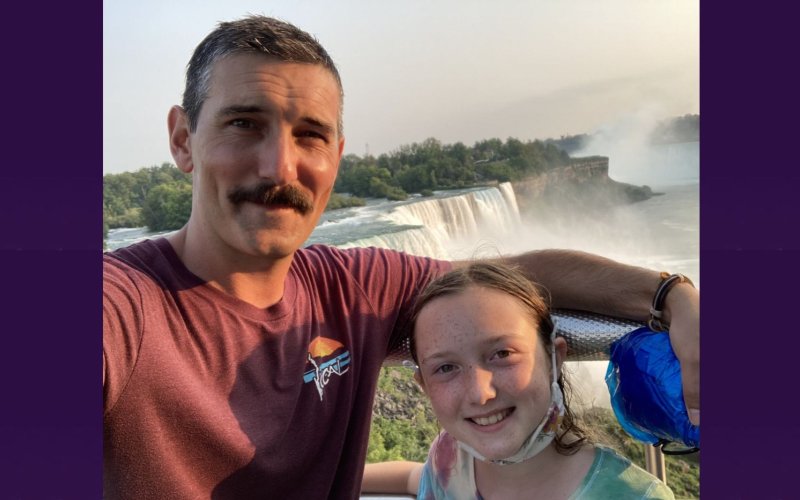5 Questions with Faculty: Ryan Irwin

ALBANY, N.Y. (March 22, 2022) — Ryan Irwin, who joined the University at Albany faculty in 2013, is an associate professor in the Department of History, and director of the University at Albany’s Institute for History and Public Engagement. His research explores global governance and decolonization, as well as the relationship between 19th century political theory and 20th century international politics. His first book, Gordian Knot: Apartheid and the Unmaking of the Liberal World Order (Oxford University Press, 2012) explored how African independence altered the international system at the height of the Cold War. He is working on a new book, Vast External Realm: America and the Invention of the Free World, a collective biography of Dean Acheson, Felix Frankfurter, Walter Lippmann and Harold Laski, which probes some of the assumptions that underlay American world power.
This fall, Irwin will be offering HST 202: Not Even Past, an interdisciplinary course that satisfies UAlbany’s “Challenges for the 21st Century” general education requirement. Last fall, Mitch Aso, also an associate professor in History, focused on the history of pandemics. For Fall 2022, Irwin will focus on the history of the War on Terror.
What makes this a Gen Ed, and not a topics course?
We worked to create this course in consultation with faculty in the College of Emergency Preparedness, Homeland Security and Cypersecurity (CEHC) and Public Health (SPH). So no matter what a particular semester’s focus is, the course offers students a foundational understanding of what it means to frame and explore a contemporary issue through a historical lens, and the role that evidence-based historical research, scholarship and methods actually play in the real world.
What can students expect from your HST 202 focus on the War on Terror?
The class is always changing because the students bring such interesting perspectives to the table. When I began teaching this topic, most everyone engaged 9/11 as a personal experience, and that’s not the case anymore at all.
So, we’ll start the semester by explaining American foreign policy after the Cold War. We’ll then dive into George W. Bush presidency — unpacking the assumptions behind and the consequences of the Iraq and Afghanistan wars — before turning attention to the Barack Obama and Donald Trump administrations.
The theme of “endings” will hang over the class throughout the semester. We all know when the War on Terror started, but when did it end? Is it over? When does something become “history”? Students will have a chance to interact with this question — and teach me a thing or two.
We'll also collaborate with faculty at CEHC, so the class will have an interdisciplinary approach. My favorite part is that we flip things at the midpoint, so the students have an opportunity to research a specific topic that interests them. As we get closer to the present day, we become partners in a conversation about how the War on Terror affects us now.
In the fall of 2020, you took over as director of the Institute for History and Public Engagement. What does that mean?
Besides more work? (I’m kidding.) It’s actually very cool — this spring we are in the second semester of a one-year NEH award to advance the study of history in areas that people might think it doesn’t belong — homeland security, informatics, emergency preparedness, public health. We’ve gotten several history courses accepted as electives in those majors, for example.
This semester we are running a “Common Problems Project” exercise in which faculty in two different disciplines run their course as usual, but bring their students together to join their expertise in addressing a community-based problem. This semester it’s Professor Alexander Dawson’s HIS/ACLS 370 (Race and Racism in America) and Professor Janine Jurkowski’s HSPH 341 (Promoting Healthy People). We’re planning to do more of those, as well.
What is the focus of your current research?
I’m focused on the way people interact with the idea of American exceptionalism. After 9/11, I lived overseas, studying abroad as a SUNY student, and I became fascinated by the way people argued about the United States.
Twenty-plus years later, I’m still trying to understand that dynamic — and I think debates about American exceptionalism can reveal interesting things about globalization. For example, my first book looked at how people abroad who were for and against apartheid tried to sway Americans with history and political theory. That book was about apartheid, but it was also about the way international politics worked in the Cold War.
Sometimes we overlook the places where rival perspectives come together and how stories interact in these spaces. I’m still writing about this same dynamic. One of my projects is about a group of people who worked as bureaucrats for the American empire in the early 20th century, and then spent the rest of their lives trying to convince people that the United States wasn’t an empire. I’m completely enthralled by their arguments and methods of persuasion. I’m also writing about a housing complex in Queens, where foreigners who worked for the United Nations lived during the 1950s. Yes, these people were doing the work of international diplomacy. But they were also navigating the vagaries of life in New York City, and they created an enclave that inspired some very influential feminists and civil rights activists after the 1960s.
What’s one thing that most people don’t know about you?
I’m a sucker for quests. During the pandemic, my family got out of the house by traveling up and down the Hudson River, photographing every bridge from Newcomb to New York City. We took a road trip across New York State too, visiting the twenty strangest places we could find along Route 20. This summer we’re biking the length of the Erie Canal. I just love the process of creating oddball adventures and then getting lost in unexpected places that aren’t far from home. You meet interesting people!




